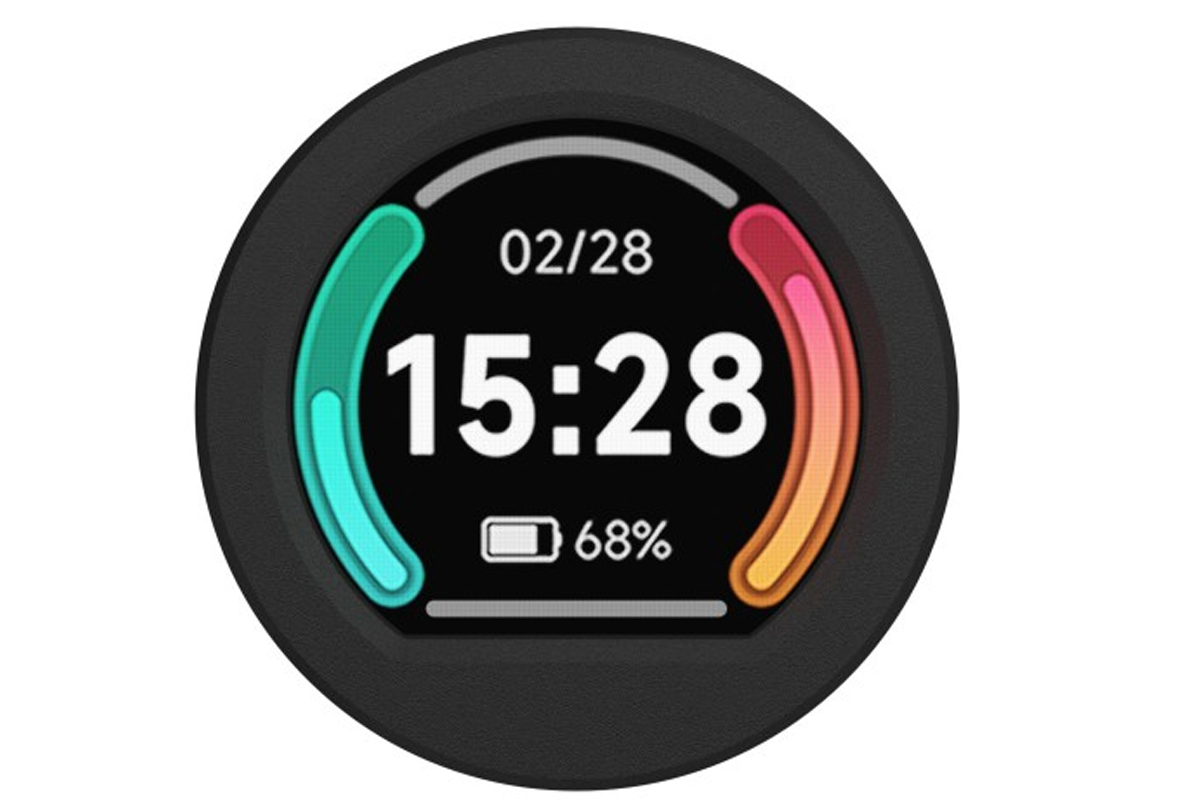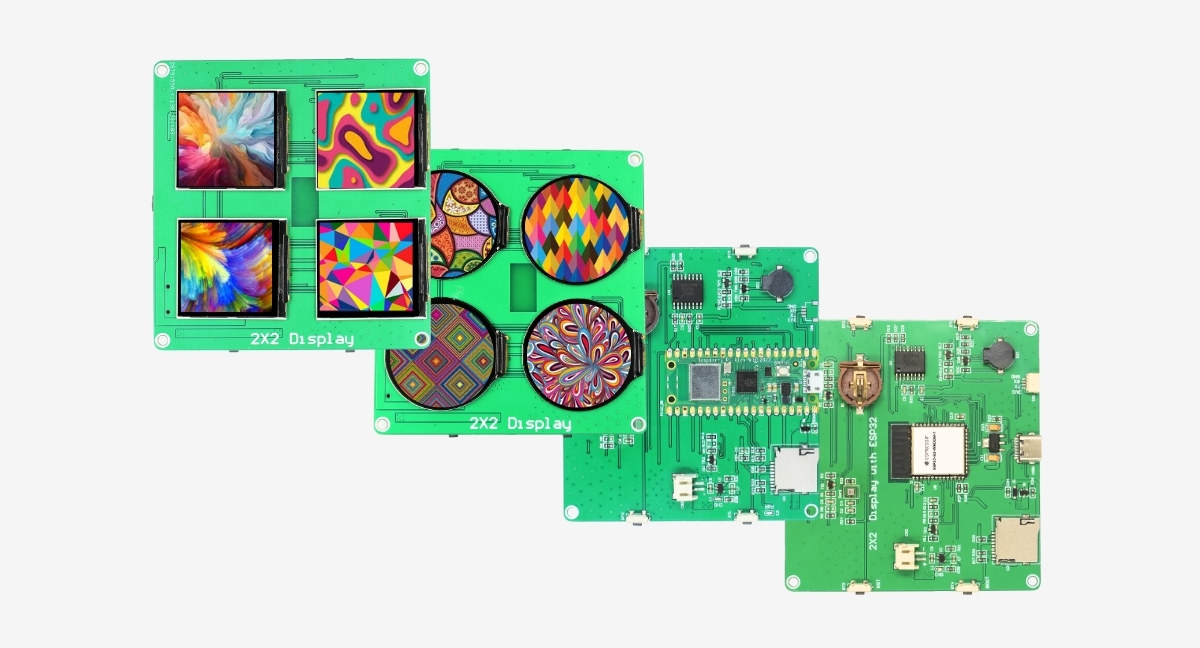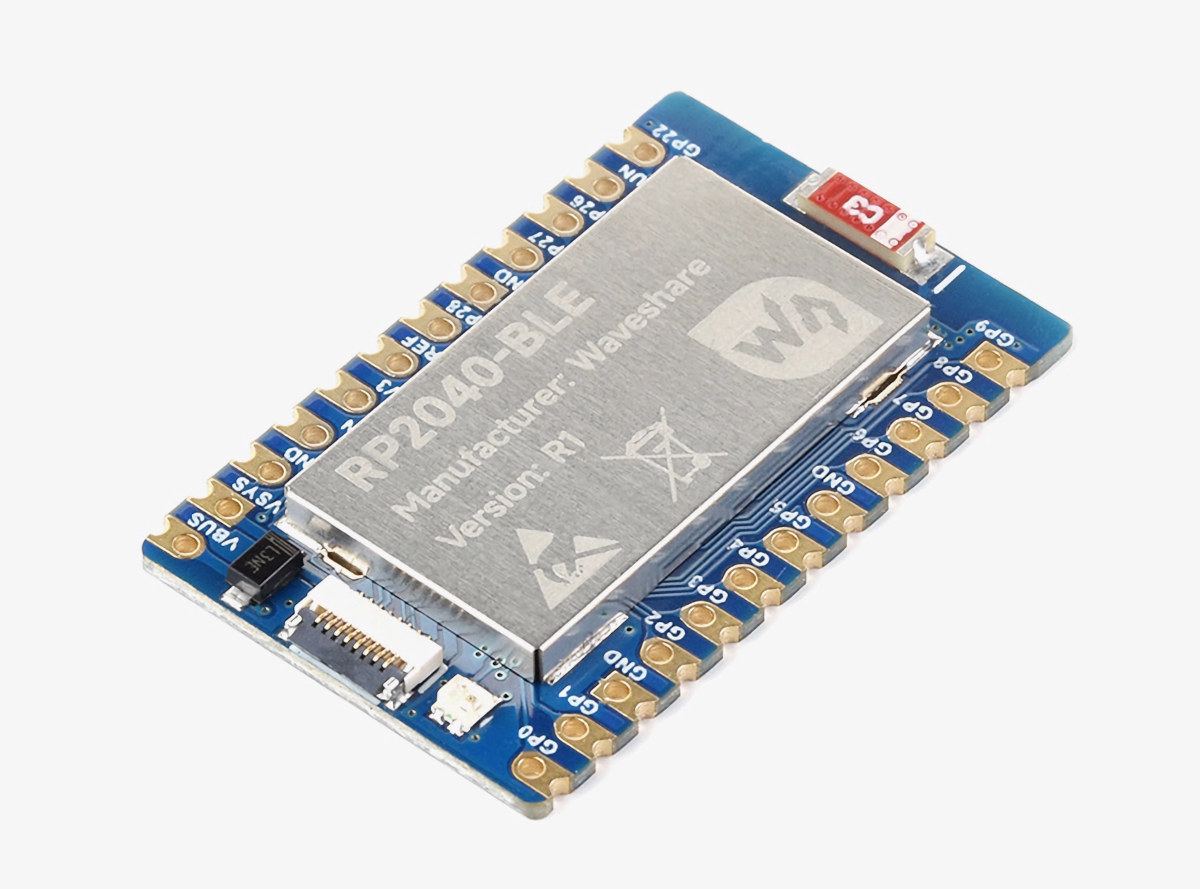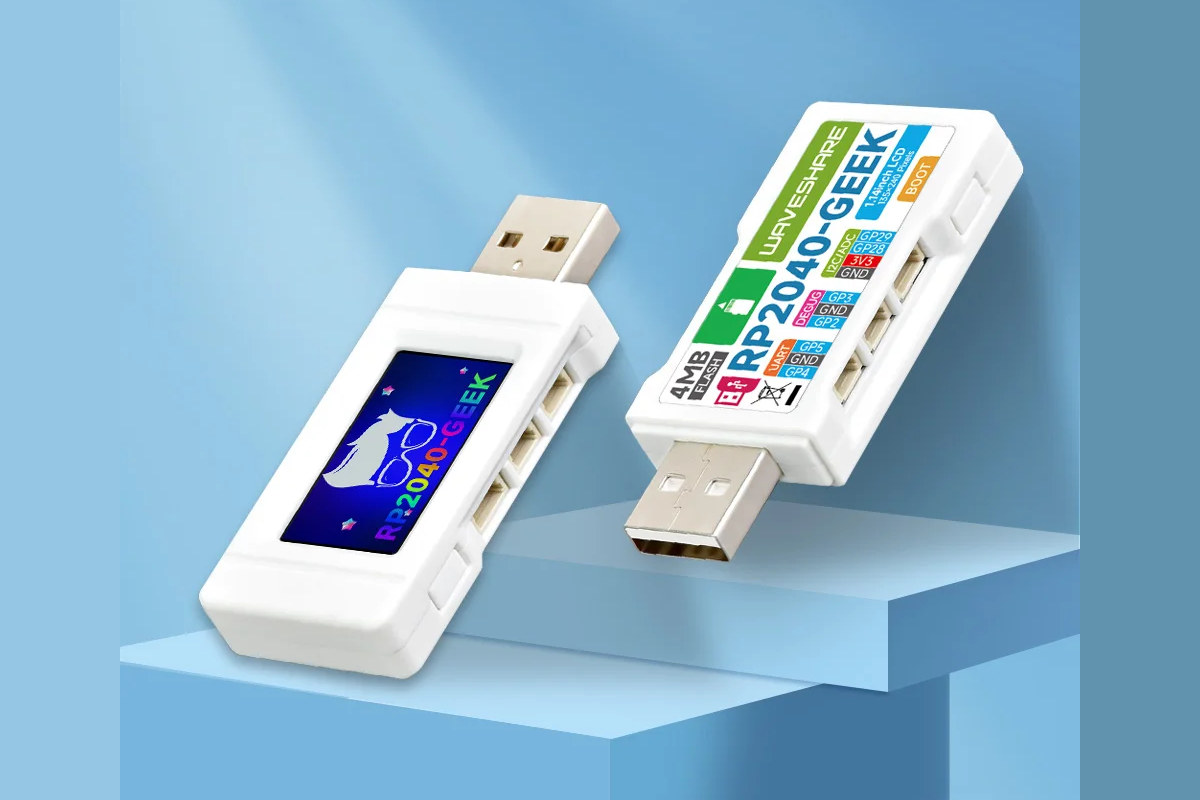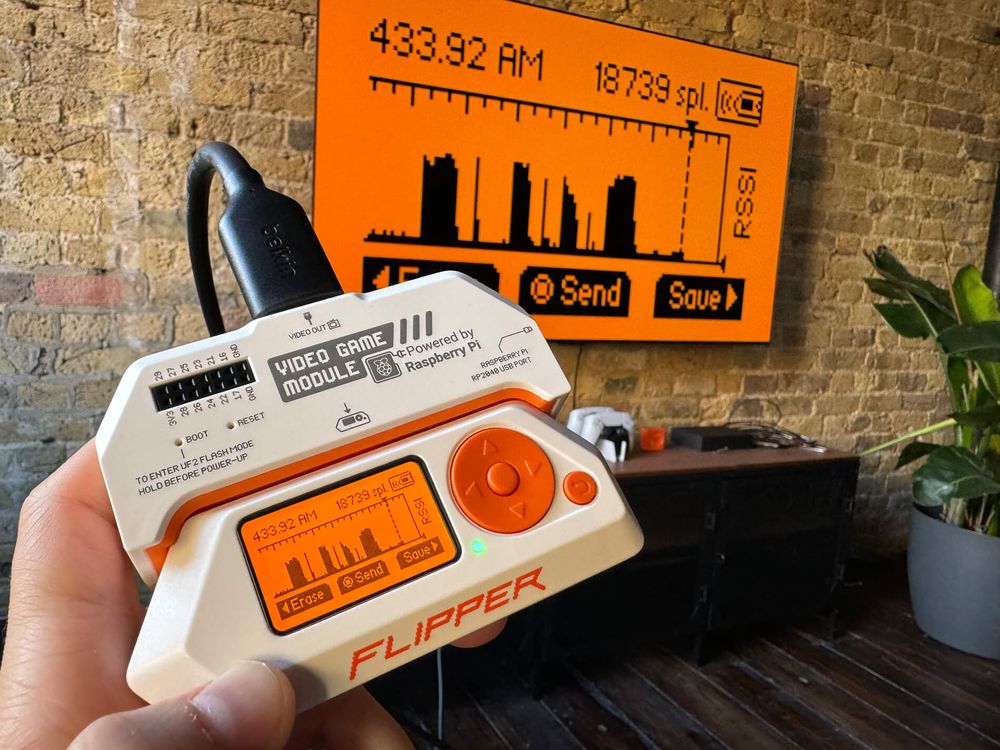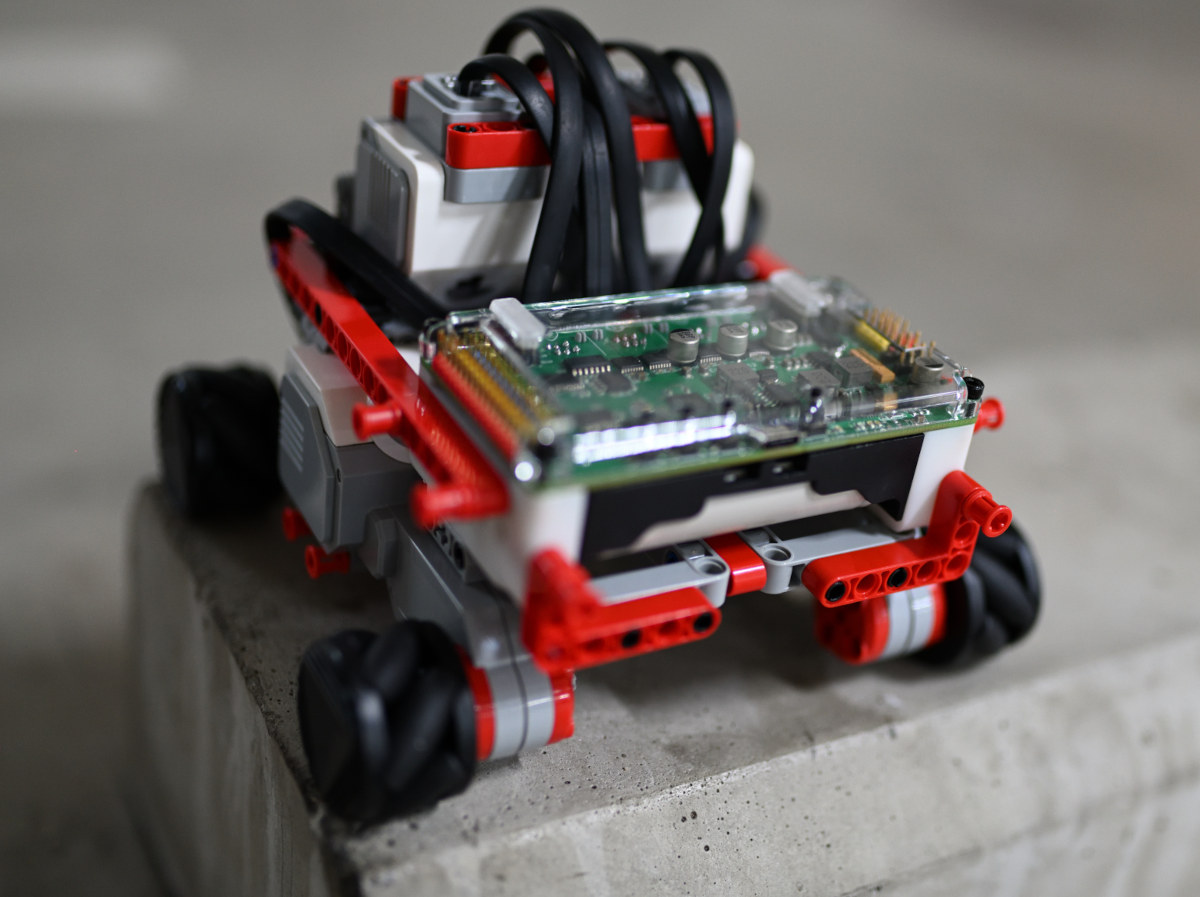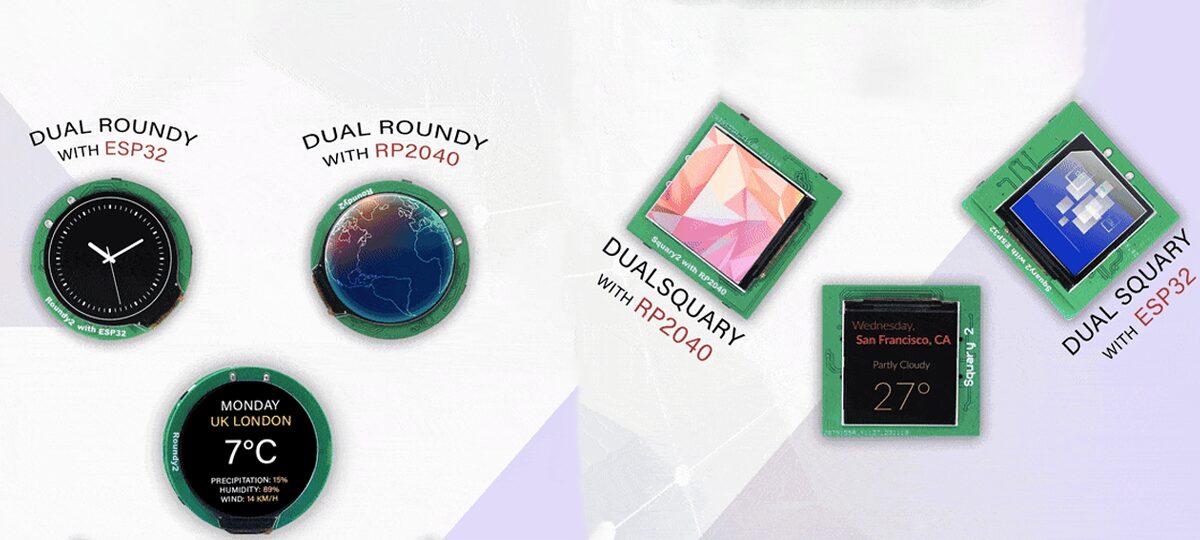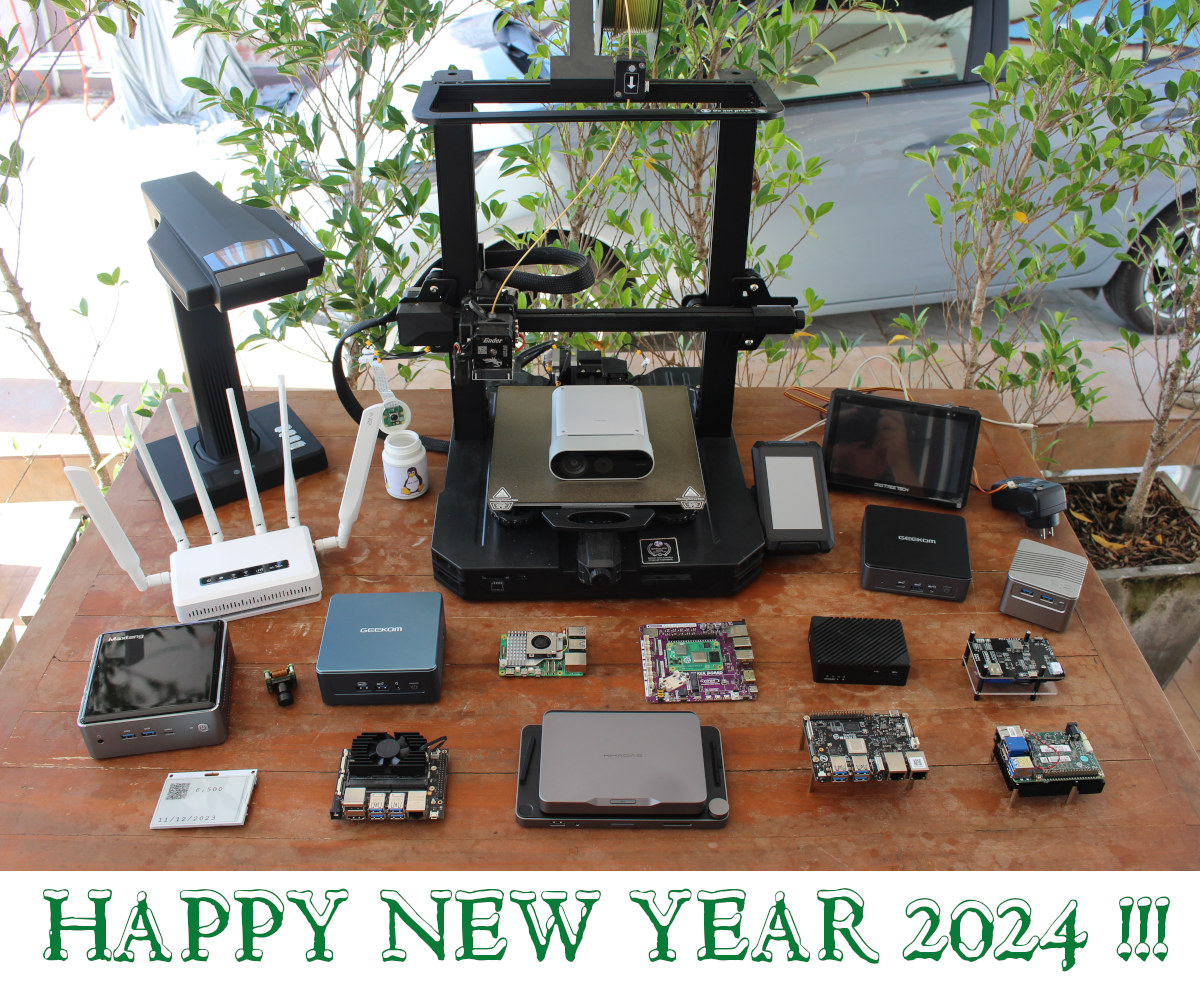The Waveshare RP2040-LCD-0.99-B rounded display is the latest display module by Waveshare. This board is built around the Raspberry Pi RP2040 MCU and hosts a 128×115 pixels 65K color IPS LCD, along with a QMI8658C IMU, all inside a CNC metal case with an acrylic dull-polish bottom plate. The board also hosts a USB Type-C connector, an LDO, a 2MB NOR-Flash, a SH1.0 6PIN connector (adapting 4x GPIO pins), and a BOOT button. Waveshare RP2040-LCD-0.99-B rounded display module specification: Microcontroller – Raspberry Pi RP2040 dual-core Arm Cortex M0+ processor up to 133 MHz with 264KB SRAM Storage – 2MB on-board flash memory Display – 0.99-inch 128×115 pixel 65K color IPS LCD USB – 1x USB 1.1 Type-C port (host/device) for power and programming using drag-and-drop via USB mass storage Sensor – QMI8658C IMU Expansion – 4x GPIO via SH1.0 6PIN connector Power Management – Low-power sleep and dormant modes Dimension – […]
2×2 Quad Display Board uses Raspberry Pi Pico W or ESP32-S3-WROOM-1 module to drive four displays (Crowdfunding)
SB Components’ 2×2 Quad Display Board is an MCU development board fitted with either a Raspberry Pi Pico W board or an ESP32-S3-WROOM-1 module used to drive four small color displays in square or round shapes. The board specifically features either four 1.54-inch square TFT displays or four 1.28-inch round displays, a microSD card, an RTC with coin-cell battery holder, and a USB-C port for power and programming, plus a few buttons. It may feel like it’s coming out of the but-why-because-we-can department, but the company expects it to be used for signage, interactive displays, art projects, portable devices, data loggers, education, and more. 2×2 Quad Display Board specifications: Main control (one or the other) Raspberry Pi Pico W MCU – Raspberry Pi RP2040 dual-core Cortex-M0+ microcontroller @ 133 MHz with 264KB SRAM Storage – 2MB QSPI flash Wireless – WiFi 4 and Bluetooth LE 5.2 USB – 1x Micro […]
Waveshare RP2040-BLE is a Raspberry Pi RP2040 module with Bluetooth LE connectivity
If you could not care less about WiFi, the Waveshare RP2040-BLE module combines a Raspberry Pi RP2040 microcontroller with an unnamed Bluetooth 5.1 dual-mode chip, and supports a USB-C add-on board useful during development. There are several Raspberry Pi RP2040 boards with a WiFi and Bluetooth module including the Raspberry Pi Pico W, but if you are only interested in using Bluetooth, the RP2040-BLE board from Waveshare may be more power-efficient and its design may be more suitable for integration into products. Waveshare RP2040-BLE specifications: MCU – Raspberry Pi RP2040 dual-core Arm Cortex M0+ microcontroller up to 133 MHz with 264KB of SRAM Storage – 2MB of onboard Flash memory. Connectivity Bluetooth 5.1 dual-mode function (BLE and classic) Controlled by serial AT commands Ceramic antenna Expansion 24x through and castellated holes with 14x multi-function GPIO pins. 2x SPI, 2x I2C, 2x UART, 3x 12-bit ADC, 14 x PWM FPC connector […]
Waveshare RP2040-GEEK USB development board features RP2040 MCU, 1.14-inch color display, UART/I2C/SWD ports
Waveshare RP2040-GEEK is a development board that looks like a USB flash drive but is based on a Raspberry Pi RP2040 microcontroller with a 1.14-inch 65K color LCD and some expansion ports all housed in a white plastic case. The device comes with a 4MB flash to store the firmware, a microSD card slot for data storage, a BOOT button to enter bootloader mode, two 3-pin connectors for UART and SWD debug, and a 4-pin I2C port. Waveshare RP2040-GEEK specifications: MCU – Raspberry Pi RP2040 dual-core Arm Cortex-M0+ microcontroller clocked up to 133 MHz with 264 kB SRAM Storage – 4MB flash (W25Q32JVSSIQ) and microSD card slot Display – 1.14-inch 240×135 pixel 65K color IPS LCD display USB – 1x USB Type-A female port for power and programming Debugging – 3-pin SWD port for connecting a target board; the standard CMSIS-DAP interface can be used to debug most Arm-based microcontrollers; […]
Flipper Zero gets a Raspberry Pi RP2040-powered video game module
Flipper Zero hardware & wireless hacking tool can now be used as a proper game console thanks to a Raspberry Pi RP2040-powered video game module that mirrors the display of the device on a larger monitor or TV via DVI/HDMI video output, and also adds a 6-axis motion tracking sensor. The Flipper Zero has been in the news in recent days, notably with Canada’s government banning the device due to car theft (although it only seems feasible on older cars), and today the company has announced the launch of a video game module developed in collaboration with Raspberry Pi Ltd. Video game module specifications: MCU – Raspberry Pi RP2040 dual-core Arm Cortex-M0+ microcontroller clocked up to 133 MHz with 264 kB SRAM Video Output – DVI-D at 640х480 with 60 Hz refresh rate. It also supports HDMI. USB – USB Type-C port connected to the microcontroller. Acts as a USB device […]
EVN Alpha is a LEGO-compatible robotics controller built around Raspberry Pi RP2040 MCU (Crowdfunding)
The EVN Alpha is a robotics project from a team based in Singapore and is aimed at roboticists seeking an advanced building platform beyond what LEGO Robotics kits offer. This robotics controller can be considered a spiritual successor to the LEGO MINDSTORMS EV3 intelligent brick. It runs on the Raspberry Pi RP2040 microcontroller with two Cortex M0+ cores running at a maximum clock speed of 133 MHz and 264KB of embedded SRAM and builds upon the rich software support available for the microcontroller. It features 64 LEGO Technic-compatible holes on five sides for easy installation into your projects and has 26 ports for I2C, UART, servos, EV3, and NXT motors. It is smaller volumetrically than the LEGO bricks and can be powered from two generic 18650 Lithium-ion cells rather than a proprietary solution (unlike the LEGO SPIKE Prime). The EVN Alpha was created as a “basecamp for students looking to […]
SB’s Dual Roundy and Squary Displays are powered by RP2040 or ESP32-S3 microcontrollers (Crowdfunding)
SB-Components has launched Dual Roundy and Dual Squary display modules powered by Raspberry Pi RP2040 or ESP32-S3 microcontrollers. These compact modules feature a 6-DoF IMU, interchangeable displays, and multiple storage and connectivity options. The Dual Roundy is equipped with two 1.28-inch round displays, with a 240 x 240 resolution, and uses the GC9A01 display driver IC. In contrast, the Dual Squary features two 1.54-inch square displays with a 240 x 240 resolution but utilizes the ST7789 display driver. Both displays offer a choice between a Raspberry Pi RP2040 MCU and the ESP32-S3-WROOM-1 module catering to different needs in performance and wireless capabilities. We’ve previously explored other rounded displays like the MaTouch ESP32-S3, T-RGB ESP32-S3, and ESP32-S3 Round SPI TFT. We’ve also examined other products from SB Components such as the Cluster HAT, PiMecha, PiTalk 3G HAT, and Micro RP2040. Feel free to check these out for more interesting tech insights. […]
2023 Year in review – Top 10 posts, statistics, and what to expect in 2024
It’s the last day and last article of the year, so we will look at some highlights of 2023, some traffic statistics on the CNX Software website, and speculate what interesting developments may happen in 2024. Looking back at 2023 The semiconductor shortage that had happened since 2020 started to fade away in early 2023, and supplies for most electronics components and devices seem to be adequate at this time, so that was a bright spot this year, and hopefully, it will stay that way in 2024 despite geopolitical tensions. We did not have any super exciting new Arm application processors from Rockchip, Amlogic, or Allwinner announced this year, although the Amlogic S928X penta-core Cortex-A76/A55 CPU started to show up in some 8K TV boxes. The launch of the Raspberry Pi 5 SBC with a Broadcom BCM2712 quad-core Cortex-A76 processor was probably the main highlight for Arm on this side […]


